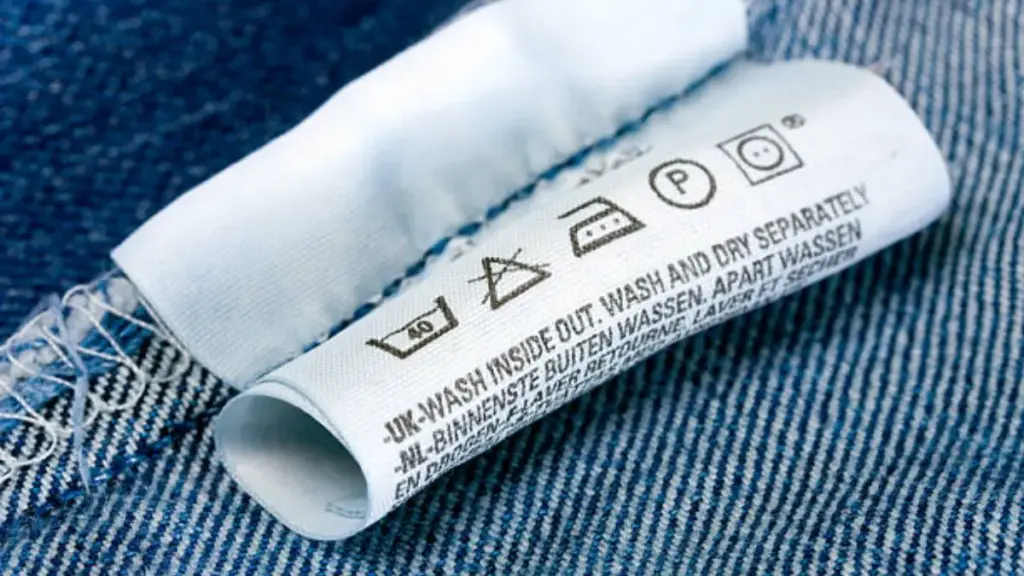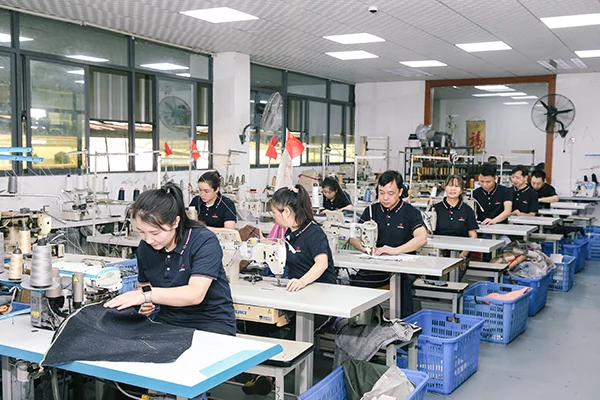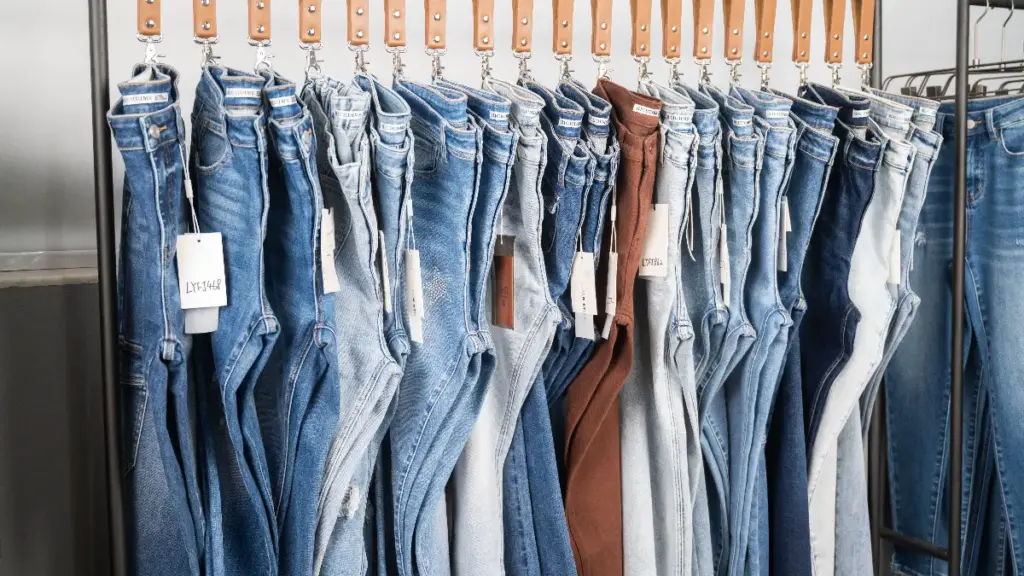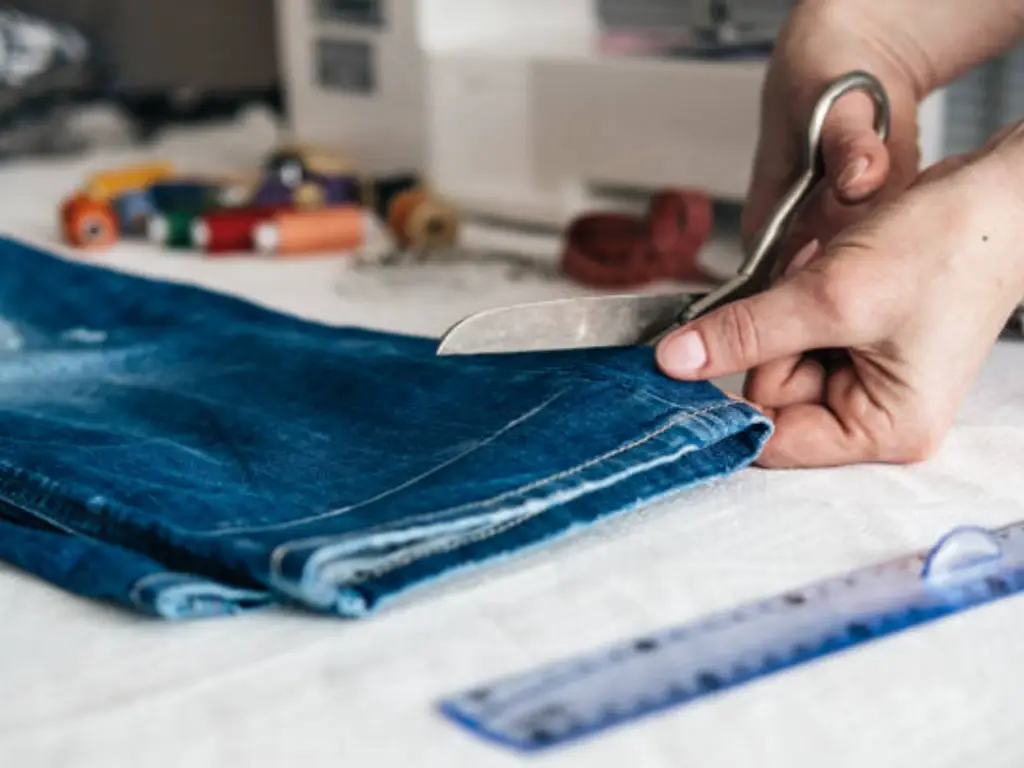In den Vereinigten Staaten, Die Herstellung von Denim-Jeans unterliegt einer Reihe strenger Umweltauflagen, Arbeit, und Einfuhrbestimmungen. Da die Nachfrage nach nachhaltigen und ethisch hergestellten Produkten steigt, Diese Compliance-Anforderungen sind zu einem Schlüsselfaktor für Produktionsprozesse und Preisgestaltung geworden.
Dieser Artikel bietet einen umfassenden Leitfaden für die USA. Einhaltung von Denim-Jeans – einschließlich Umweltvorschriften, Kennzeichnungspflichten, Einfuhrbestimmungen, und die Kostenauswirkungen für die Interessengruppen in der Bekleidungsindustrie.
Kernerkenntnisse über die USA. Denim-Jeans-Konformität
- UNS. Compliance-Anforderungen bei der Herstellung von Denim-Jeans erzwingen strenge Umwelt- und Arbeitsstandards, Dies führt zu höheren Kosten, sorgt aber für Sicherheit und Nachhaltigkeit.
- Einzelhändler und Importeure müssen die Kennzeichnung verstehen, Einfuhrzölle, und Sicherheitstests, um regulatorische Fallstricke zu vermeiden und konforme Lieferketten zu sichern.
Wichtige USA. Compliance-Anforderungen für Denim-Jeans
Vor dem Export Jeans Jeans in die Vereinigten Staaten, Hersteller müssen mehrere Bundesvorschriften zur Kennzeichnung einhalten, Sicherheit, Umwelt, und Zollnormen. Die folgende Tabelle fasst die wichtigsten Compliance-Kategorien und zuständigen Behörden für die Einfuhr von Denim-Bekleidung in die USA zusammen. Markt.
| Compliance-Kategorie | Kernanforderung | Regulierungsbehörde |
|---|---|---|
| Kennzeichnung des Fasergehalts | Geben Sie die Prozentsätze der Stoffzusammensetzung deutlich an | FTC |
| Herkunftsland-Label | Es muss angegeben werden: „Hergestellt in + Land“ genau angeben | FTC / CBP |
| Herstelleridentifikation | Firmenname oder RN (Registrierte Identifikationsnummer) | FTC |
| Produktsicherheitsstandards | Muss bleifrei sein, brennbare Materialien, oder schädliche Chemikalien | CPSC |
| Umweltkonformität | Beschränkung der Entsorgung gefährlicher Chemikalien und des Abwassers | EPA |
| Zoll- und Einfuhrbestimmungen | Korrekte HS-Code-Deklaration; keine Beteiligung an Zwangsarbeit | CBP |
*Aus den USA zusammengestellte Informationen. Kennzeichnung von Bundesbekleidung, Sicherheit, und Einfuhrbestimmungen. Nur als Referenz.
UNS. Einhaltung von Umwelt- und Arbeitsvorschriften bei der Herstellung von Denim-Jeans

Einhaltung der US-amerikanischen. Umwelt- und Arbeitsnormen sind ein entscheidender Aspekt von Denim-Herstellung. Diese Vorschriften stellen sicher, dass der Produktionsprozess die Umweltbelastung minimiert und der Sicherheit und dem Wohlbefinden der Arbeitnehmer Vorrang einräumt. In den folgenden Abschnitten werden die wichtigsten Vorschriften zur Denim-Verarbeitung und Arbeitssicherheit in den USA dargelegt. Fabriken.
Umweltvorschriften für die Denim-Verarbeitung
UNS. Denim-Hersteller müssen strenge Umweltvorschriften einhalten, die darauf abzielen, die Umweltauswirkungen der Denim-Produktion zu reduzieren. Dazu gehören Richtlinien für den Einsatz von Chemikalien, Wasseraufbereitung, und Abfallmanagement. Die Umweltschutzbehörde (EPA) setzt diese Vorschriften durch, um sicherzustellen, dass Herstellungsprozesse weder die Luft noch das Wasser verschmutzen.
Denimfabriken müssen in fortschrittliche Abwasseraufbereitungssysteme investieren, um die Standards des Clean Water Act zu erfüllen, insbesondere im Hinblick auf die giftigen Rückstände aus Färbe- und Waschprozessen. Zusätzlich, die Verwendung von Chemikalien wie synthetischen Farbstoffen und flüchtigen organischen Verbindungen (VOCs) wird streng kontrolliert, um die Luftverschmutzung zu reduzieren. Diese Maßnahmen erfordern oft erhebliche Investitionen in die Technologie, sind aber für die Aufrechterhaltung der Nachhaltigkeit und der Einhaltung gesetzlicher Vorschriften erforderlich.
Arbeitssicherheitsstandards in den USA. Denim-Fabriken
UNS. Denimfabriken stehen unter der strengen Aufsicht der Arbeitsschutzbehörde (OSHA), die umfassende Standards für den Maschinenbetrieb durchsetzt, Umgang mit Chemikalien, und persönliche Schutzausrüstung (PSA). Diese Vorschriften schreiben einen ordnungsgemäßen Maschinenschutz für industrielle Näh- und Laserbearbeitungsgeräte vor, sichere Belüftungssysteme für den Umgang mit Indigofarbstoffen und chemischen Sprays, und die Bereitstellung von Atemschutzgeräten, Handschuhe, und Augenschutz für Arbeiter. Dieser strenge Rahmen soll die erheblichen Berufsrisiken, die mit der Textilherstellung einhergehen, mindern, Gewährleistung einer sicheren Arbeitsumgebung und Schutz der Arbeitnehmer vor langfristigen Gesundheitsrisiken. Die Einhaltung dieser Arbeitsnormen wirkt sich direkt auf die Betriebskosten und die Personalstruktur aus, Dies erfordert erhebliche Investitionen in laufende Sicherheitsschulungsprogramme, spezielle Schutzausrüstung, und regelmäßige Compliance-Audits.
Beschriftung, Import, und Sicherheitstestanforderungen für Denim-Jeans in den USA.

UNS. Vorschriften stellen auch strenge Anforderungen an die Kennzeichnung, Einfuhr, und Sicherheitstests für Denim-Jeans. Diese Regeln stellen sicher, dass Denim-Produkte bestimmte Verbrauchersicherheitsstandards erfüllen und ermöglichen eine reibungslose Zollabfertigung. In diesem Abschnitt werden die wichtigsten Kennzeichnungsgesetze erläutert, Einfuhrzölle, und Compliance-Tests Hersteller von Denim-Jeans und Importeure müssen navigieren.
Obligatorische Kennzeichnungsanforderungen für die USA. Jeans Jeans
Denim-Jeans in den USA verkaufen, Hersteller müssen die Vorschriften der Federal Trade Commission einhalten (FTC) Vorschriften, die die Produktkennzeichnung regeln. Auf den Etiketten muss der Fasergehalt deutlich erkennbar sein, Ursprungsland, und Pflegehinweise, Gewährleistung, dass Verbraucher Zugang zu wichtigen Informationen über das Produkt haben.
Zusätzlich, Alle Denim-Produkte müssen eine registrierte Identifikationsnummer tragen (RN), die das Produkt mit dem Hersteller oder Importeur verbindet. Eine genaue Kennzeichnung gewährleistet nicht nur die Einhaltung der Vorschriften, sondern schafft auch Vertrauen beim Verbraucher, indem sie Transparenz über die Herkunft und Zusammensetzung des Produkts schafft.
Diese Kernanforderungen gelten zwar allgemeingültig, Importierte Denim-Jeans stehen vor einem zusätzlichen Preis, Kritische Kontrolle durch die USA. Zoll- und Grenzschutz (CBP), das die Herkunftslanderklärung streng überprüft. Im Inland hergestellte Jeans sind von dieser speziellen Zollkontrolle ausgenommen, müssen jedoch dennoch sorgfältige Aufzeichnungen führen, um ihre Behauptung „Made in the USA“ zu untermauern, Eine von der FTC durchgesetzte Bezeichnung, die erfordert, dass alle wichtigen Verarbeitungs- und Montagearbeiten innerhalb der Vereinigten Staaten stattfinden.
Konformitätstests und Sicherheitsstandards
Für die meisten Denim-Jeans für Erwachsene, spezifische CPSIA (Gesetz zur Verbesserung der Sicherheit von Verbraucherprodukten) Tests sind nicht verpflichtend, da sie nicht als Kinderprodukte eingestuft sind. Jedoch, Jegliche Jeansbekleidung, die für Kinder ab 10 Jahren vermarktet wird 12 und darunter unterliegen strengen CPSIA-Tests auf Bleigehalt (unter 100 ppm), Phthalate, und andere gefährliche Stoffe, um die Sicherheit zu gewährleisten. Außerdem, alle Jeans, unabhängig von der Zielgruppe, müssen dem Flammable Fabrics Act entsprechen, was Denim aufgrund seiner engen Webart und seines hohen Gewichts von Natur aus erfüllt, Allerdings müssten alle leicht entflammbaren dekorativen Elemente oder Behandlungen einer Bewertung bedürfen.
Einfuhrbestimmungen und Zölle für Denim-Jeans
Durch die USA navigieren. Die Zollabfertigung von Denim-Jeans erfordert eine sorgfältige Dokumentation, um Verzögerungen und Strafen zu vermeiden. Importeure müssen eine detaillierte Handelsrechnung einreichen, eine Packliste, und ein Frachtbrief oder Luftfrachtbrief in die USA. Zoll- und Grenzschutz (CBP). Ein gültiges Ursprungszeugnis ist außerdem zwingend erforderlich, um die geltenden Zollsätze im Rahmen verschiedener Handelsabkommen zu ermitteln, Für bestimmte Oberflächen oder Materialien sind möglicherweise zusätzliche Konformitätszertifikate erforderlich, die die Einhaltung von Sicherheits- und Umweltstandards belegen.
Korrekter harmonisierter Tarifplan (HTS) Die Klassifizierung ist für die Berechnung der endgültigen Zölle von wesentlicher Bedeutung. Denim-Jeans fallen normalerweise unter die HTS-Codes 6203.42 (Herren/Jungen) Und 6204.62 (Damen/Mädchen), Tragen Meistbegünstigungszollsätze zwischen 10-17% des Produktwerts. Die Überprüfung der Stoffzusammensetzung und -konstruktion ist von entscheidender Bedeutung, da geringfügige Abweichungen zu unterschiedlichen Einstufungen und erheblich unterschiedlichen Zollsätzen führen können, wirkt sich direkt auf die gesamten Anschaffungskosten aus.
Flexible OEM-Denim-Herstellung, maßgeschneidert für Ihre Marke
Arbeiten Sie mit Changhong Garment zusammen, um hochwertige Jeans für Startups zu erhalten, Einzelhändler, und umweltbewusste Labels. Profitieren Sie von einer schnellen Bemusterung, skalierbare Produktion, und Stile, die mit globalen Trends Schritt halten, alle entsprechen den EU- und US-Standards.

UNS. Denim-Compliance bei Preisgestaltung und Marktpositionierung

Die strengen Umwelt- und Arbeitsnormen in den USA. sind die Haupttreiber für den Premiumpreis von im Inland hergestellten Denim-Jeans, oft beginnend bei $200 oder mehr. In diesem Abschnitt werden die durch Compliance verursachten Kosten untersucht und wie sich diese Kosten auf die Marktpositionierung und die Wahrnehmung der Verbraucher auswirken.
Vergleich der wichtigsten Compliance-Kosten in den USA. vs. Länder mit kostengünstiger Denim-Herstellung
| Kostenkategorie | UNS. Herstellung | Fertigung im Ausland (Asien / Mittelamerika) |
|---|---|---|
| Einhaltung von Umweltvorschriften | $6– 10 $ pro Einheit | $1– 3 $ pro Einheit |
| Arbeitssicherheitsstandards | $8– 12 $ pro Einheit | $2– 4 $ pro Einheit |
| Compliance-Audits & Dokumentation | $3– 5 $ pro Einheit | $0.5– 1 $ pro Einheit |
| Material- und Chemikalienbeschaffung | $20–25 $ pro Einheit | $12– 18 $ pro Einheit |
| Geschätzte Gesamtkosten im Zusammenhang mit der Compliance | $37– 52 $ pro Einheit | $15–26 $ pro Einheit |
Alle Zahlen basieren auf Branchendurchschnittsschätzungen und dienen nur zu Referenzzwecken.
Die Compliance-Kosten variieren jedoch je nach Region erheblich, erfahrene Hersteller in China – wie z Changhong -Jeans–haben sauberere Produktionstechnologien und internationale Zertifizierungssysteme eingeführt, um Marken dabei zu helfen, sowohl Nachhaltigkeit als auch Erschwinglichkeit zu erreichen.
Die Kosten für Denim-Jeans werden durch Compliance-Standards bestimmt
Die finanziellen Auswirkungen der USA. Compliance-Anforderungen sind vielfältig und spielen eine Schlüsselrolle bei der Gestaltung der Endkosten von Denim-Jeans. Treffen EPA Umweltvorschriften zur Abwasserbehandlung, Indigofärbung, und die chemische Endbearbeitung erfordert fortschrittliche Filter- und Recyclingsysteme – was für jede Anlage eine beträchtliche Investition darstellt. Ebenfalls, Einhaltung OSHA Sicherheitsstandards am Arbeitsplatz bedeuten die Aufrechterhaltung sicherer Maschinen, Bereitstellung von Schutzausrüstung, und Implementierung kontinuierlicher Mitarbeiterschulungsprogramme.
Zusätzlich, Die Beschaffung zertifizierter, umweltfreundlicher Farbstoffe und Chemikalien erhöht die Materialkosten in der Regel um 10–25 %., während laufende Prüfungen durch Dritte und Compliance-Dokumentation den Verwaltungsaufwand erhöhen. Insgesamt, Diese Faktoren können die inländischen Denim-Produktionskosten im Vergleich zur Herstellung in weniger regulierten Regionen wie Teilen Asiens oder Mittelamerikas um etwa 20–40 % erhöhen.
Marktpositionierung und Verbraucherwahrnehmung
Strenge USA. Compliance-Standards, und gleichzeitig die Produktionskosten erhöhen, ermöglichen es Denim-Marken, ihre Produkte in einem Premium-Marktsegment zu positionieren. Compliance wird Teil des Markennarrativs – ein Beweis für verantwortungsvolle Beschaffung, faire Arbeit, und umweltgerechte Herstellung. Dadurch können Marken höhere Einzelhandelspreise rechtfertigen, oft über 150–200 $, indem wir erstklassige Handwerkskunst und ethische Produktion hervorheben.
Den Verbrauchern von heute – insbesondere denen der nachhaltigen Modebewegung – ist es wichtig, wie und wo ihre Jeans hergestellt werden. Zertifizierungen wie z Fairer Handel, OEKO-TEX, oder WICKELN, sowie eine transparente Supply-Chain-Kommunikation, sind mittlerweile wichtige Kauftreiber. Indem wir uns an diesen Werten orientieren, Denim-Hersteller, die den US-amerikanischen Vorschriften entsprechen. Standards können eine stärkere Markentreue aufbauen und sinnvolle Preisaufschläge erzielen, Compliance wird zu einem Wettbewerbsvorteil und nicht zu einer Kostenstelle.
Abschluss

Für Marken, die die USA treffen möchten. Compliance-Erwartungen erfüllen und gleichzeitig wettbewerbsfähige Preise gewährleisten, Die Zusammenarbeit mit erfahrenen ausländischen Herstellern ist eine praktische Lösung.
Changhong -Jeans, ein in China ansässiger Denim-Hersteller mit über 20 Jahre Produktionserfahrung, bietet OEM- und ODM-Dienstleistungen an, die den internationalen Umwelt- und Sicherheitsstandards entsprechen. Wir integrieren nachhaltige Waschprozesse wie Ozon- und Laserveredelung, um den Einsatz von Chemikalien und Wasser zu minimieren und so globalen Marken dabei zu helfen, die Anforderungen der US-amerikanischen Standards zu erfüllen. Importkonformität bei gleichzeitiger Kosteneffizienz. Kontaktieren Sie uns jetzt und wir freuen uns, mit Ihnen zusammenzuarbeiten.
Häufig gestellte Fragen
Welche Kennzeichnungsanforderungen gelten für Denim-Jeans in den USA??
In den USA verkaufte Denim-Jeans. Es muss ein Etikett mit Angabe des Fasergehalts vorhanden sein, Ursprungsland, Pflegehinweise, und eine registrierte Identifikationsnummer (RN). Eine genaue Kennzeichnung ist für die Einhaltung der FTC-Vorschriften unerlässlich und sorgt für Verbrauchertransparenz.
Brauchen Denim-Jeans einen CPSIA-Test??
Denim-Jeans für Erwachsene sind grundsätzlich von der CPSIA-Prüfung ausgenommen. Jedoch, Denim-Produkte für Kinder müssen strenge Sicherheitsstandards erfüllen, einschließlich der Prüfung auf Blei, Phthalate, und andere gefährliche Stoffe.
Welche Zölle gelten für importierte Denim-Jeans??
In die USA importierte Denim-Jeans. unterliegen den Zollsätzen, die auf ihrer Einstufung im Harmonisierten Zolltarif basieren (HTS). Diese Aufgaben reichen typischerweise von 10% Zu 17% vom Wert des Produkts. Jeans importiert aus Ländern mit Freihandelsabkommen (Freihandelsabkommen) mit den USA. können ermäßigte oder zollfreie Sätze in Anspruch nehmen.






